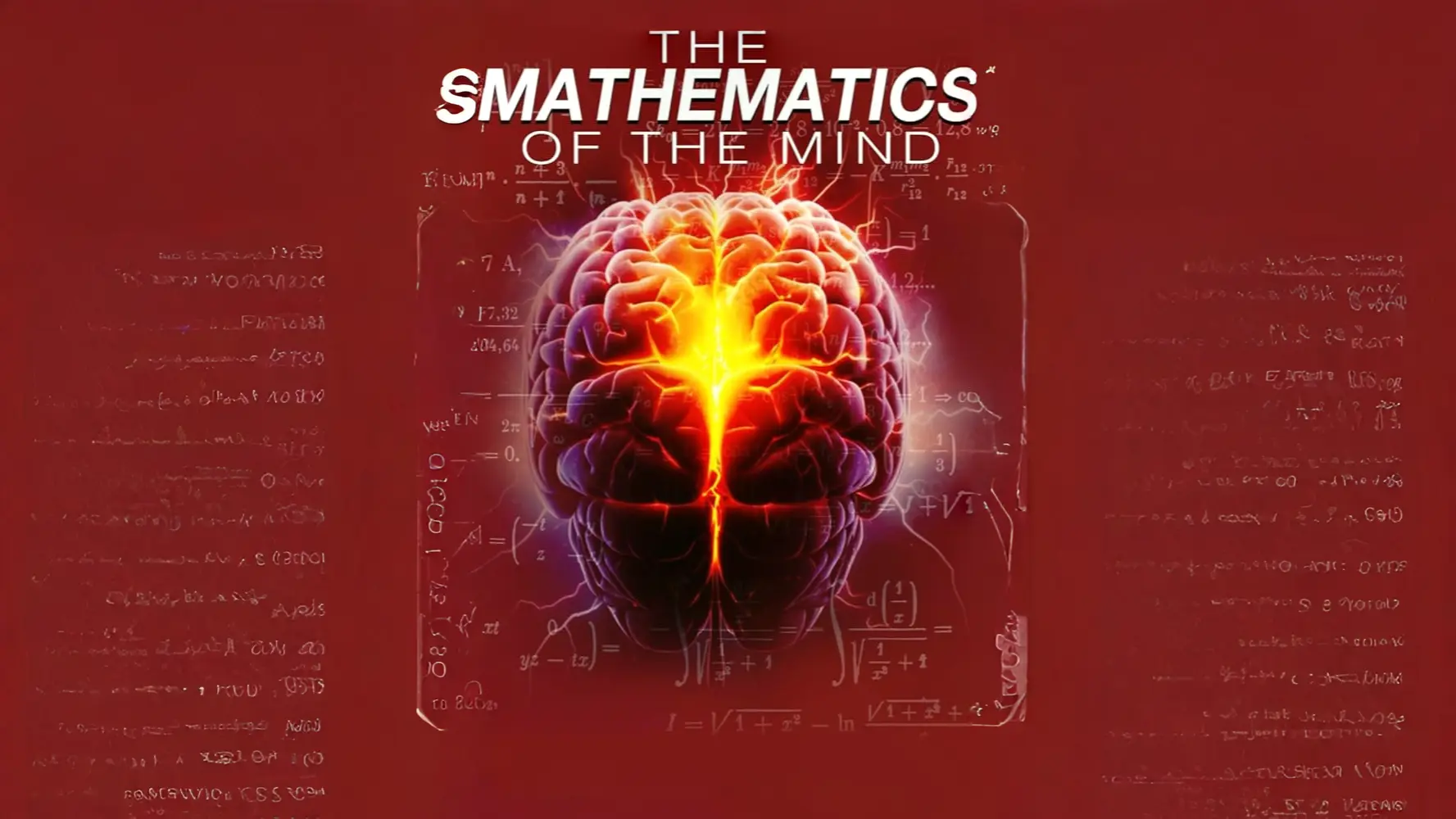Maths
Mathematics is often viewed as a challenging subject, reserved for classrooms and complex calculations. However, maths is an integral part of our everyday lives, offering practical benefits that go far beyond equations on a page. From budgeting finances to planning travel routes, maths helps us make sense of the world around us and make informed decisions.
Consider grocery shopping: we calculate costs, estimate discounts, and compare prices—skills rooted in basic arithmetic. In cooking, we use ratios and measurements to scale recipes, ensuring that a favourite dish turns out perfectly. Even in our digital age, maths powers the algorithms behind search engines, online shopping recommendations, and social media feeds, all tailored through mathematical logic.
For students and professionals alike, maths develops logical thinking and problem-solving skills. These abilities, honed through mathematical practice, can enhance critical thinking and creativity, providing a foundation for careers in engineering, economics, computer science, and more.
Understanding the real-world value of maths can transform it from a daunting subject into a powerful tool, inspiring people of all ages to embrace its practical applications. Whether balancing a budget or exploring advanced fields, maths is a skill that continues to empower and inspire.
-
28 Oct 2024
Most people think of math as just numbers and equations, but I have found it to be so much more than that! Studying math can significantly boost your problem-solving skills, allowing you to tackle challenges with a methodical approach. You might be surprised how logical thinking and analytical skills gained through math can apply to real-world situations, helping you make better decisions and overcome obstacles. In this post, I’ll share how exploring into the world of numbers can transform your abilities to solve problems effectively.
Key Takeaways:
- Logical Thinking: Studying math fosters analytical reasoning, allowing individuals to break down complex problems into manageable parts.
- Pattern Recognition: Engaging with mathematical concepts enhances the ability to identify patterns and relationships, which can be applied to various real-world scenarios.
- Structured Approach: Math encourages a systematic method for tackling challenges, helping to maintain focus and organization when solving problems.
Why Math Matters: The Basics
For anyone seeking to sharpen their problem-solving skills, math serves as a solid foundation. It’s not just about numbers or equations; it's about learning how to approach challenges methodically. By studying math, you equip yourself with the tools to analyze situations, break down complex problems, and arrive at logical solutions. This approach transcends math itself, enhancing your reasoning abilities in daily life, work, and beyond.
The Structure of Mathematical Thinking
About how we process information, mathematical thinking encompasses logical reasoning and systematic analysis. I find that math encourages me to tackle problems step by step, as I develop a deeper understanding of patterns and relationships. This structured approach fosters a disciplined mindset that is applicable in various scenarios, serving as a powerful tool for both academic and real-world challenges.
Problem-Solving Mindset
At the heart of effective problem-solving is a mindset that embraces challenges and seeks solutions. I’ve learned to view obstacles as opportunities for growth, nurturing resilience and creativity when tackling difficult tasks. This perspective not only makes problem-solving more enjoyable but also instills a sense of confidence in my abilities.
The problem-solving mindset I cultivate through math empowers me to approach challenges with determination. When faced with a problem, I instinctively apply the techniques I've learned, dissecting it into manageable steps. This process-oriented approach allows me to explore multiple solutions, challenging my initial assumptions and pushing my creative boundaries. Overall, embracing challenges leads to a more productive and fulfilling problem-solving experience, turning what once seemed daunting into an achievable goal.
Different Types of Math and Their Benefits
While there are various branches of math, each offers unique benefits that enhance your problem-solving skills. Here’s a breakdown:
| Type of Math | Benefits |
| Algebra | Helps simplify complex problems. |
| Geometry | Enhances spatial awareness. |
| Statistics | Aids in making data-informed decisions. |
| Calculus | Facilitates understanding of change. |
| Number Theory | Boosts logical reasoning skills. |
Thou can see how each type of math brings its own unique value to your problem-solving arsenal.
Algebra: Breaking Down Problems
At its core, algebra teaches you to break down complex problems into smaller, manageable parts. By using variables and equations, I can tackle challenges step by step, making it easier to find solutions.
Geometry: Visualizing Solutions
Above all, geometry allows me to visualize problems and potential solutions. It gives you the tools to see shapes, sizes, and angles, which helps frame the problem contextually.
Down the line, mastering geometry can significantly improve your understanding of real-world applications. You become adept at seeing the interrelationships between various elements in a problem, allowing for innovative problem-solving strategies. This can be particularly exciting when working on projects that require design or planning, as it opens the door to new perspectives. Embracing your spatial-thinking skills can lead to more efficient and creative solutions, making geometry a truly valuable area of study.
Real-World Applications of Math Skills
Unlike what many people believe, math isn't just about numbers and equations confined to classrooms. In reality, math skills are necessary tools that enhance our ability to tackle real-world challenges, from budgeting finances to optimizing resources. When I apply mathematical concepts in everyday life, I see improved decision-making and efficiency in tasks I might have once found difficult or overwhelming.
Everyday Problem-Solving
Everyday situations often require quick calculations, whether I'm splitting a bill, planning a trip, or even cooking. By using math skills, I find myself making more informed choices and managing my time better. This ability to think logically and systematically keeps stress at bay and equips me to handle various life scenarios with ease.
Careers that Rely on Math
RealWorld, math skills are indispensable in numerous professions. Fields such as engineering, finance, and data analysis utilize mathematical principles to solve complex problems and drive innovation. This shows that having a strong foundation in math not only boosts your everyday problem-solving abilities but also opens doors to rewarding career opportunities.
But it’s not just restricted to traditional math-heavy fields! For instance, in health care, math is used for dosage calculations and interpreting statistics about patient outcomes. In technology, math underpins algorithms and data structures that power software applications. Even in creative industries like graphic design, math is necessary for understanding proportions and geometry. Embracing math equips you with problem-solving skills that are vital not just in specialized careers, but in everyday life as well.
Strategies for Enhancing Your Math Skills
After venturing into the world of math, I realized that enhancing my math skills required intentional strategies. I discovered the importance of practicing regularly, exploring different problem-solving methods, and staying curious. Each of these techniques contributed significantly to my growth and understanding, paving the way for better problem-solving skills in everyday life.
Practice Makes Perfect
With consistent practice, I found that I could tackle challenging math problems more effectively. Devoting time each day to work through various types of equations not only strengthened my understanding but also boosted my confidence. Over time, I noticed that the patterns and techniques became clearer, making problem-solving feel less daunting.
Embracing Mistakes
Behind every mistake lies an opportunity for growth and deeper comprehension. When I started viewing errors as a natural part of the learning process, my math skills flourished.
In fact, embracing mistakes has been one of the most transformative aspects of my math journey. I learned that each error provides valuable feedback and an opportunity to understand my thought process better. Emphasizing self-compassion allows us to examine deeper into the reasoning behind our mistakes, leading to profound insights. The more I accepted that mistakes are simply stepping stones toward mastery, the more I nurtured my critical thinking skills. Overall, this shift in perspective transformed my approach to math and enhanced my overall problem-solving abilities.
Math and Critical Thinking
Now, when it comes to enhancing my critical thinking skills, math plays an instrumental role. The logical reasoning and analytical processes required in math challenges my thought patterns, helping me approach problems with a clearer and more organized mindset. As I engage with mathematical concepts, I find myself developing a more structured way to evaluate complex issues in everyday life.
Analyzing Arguments
Between facts and opinions, math helps me dissect arguments effectively. By using mathematical reasoning, I can assess the validity of claims, identify biases, and evaluate evidence more critically. This enables me to separate solid arguments from those that lack merit, which is imperative in both academic and personal discussions.
Making Informed Decisions
Among the many benefits of math is its ability to aid in making informed decisions. When faced with choices, I often rely on mathematical principles to weigh options, assess risks, and predict potential outcomes. This analytical approach allows me to look beyond emotions and intuitions, leading to choices that are more logical and, ultimately, beneficial.
With increased exposure to mathematical concepts, I find that my decision-making processes become more data-driven and objective. Whether I'm budgeting for a new project or analyzing a significant life choice, the ability to interpret numbers, probabilities, and trends gives me a stronger foundation for my conclusions. By utilizing this mathematical perspective, I can navigate complex situations with confidence, reducing uncertainty and increasing my chances of achieving desirable results.
Tips for Staying Motivated
Once again, maintaining motivation can be challenging, but there are effective strategies to help you stay on track. Here are some tips that work for me:
- Break down complex topics into manageable pieces.
- Set a consistent study schedule.
- Reward yourself after completing a challenging problem.
- Join study groups to share insights and support each other.
The journey of mastering math is filled with ups and downs, so find what inspires you!
Finding Resources You Love
Along your math journey, discovering engaging resources can make a significant difference. I constantly explore various materials like online tutorials, interactive apps, or Math YouTube channels that resonate with my personal learning style. The right resources can create a more enjoyable learning experience, helping you dive deeper into problem-solving concepts with enthusiasm!
Setting Achievable Goals
Setting specific, attainable goals plays a key role in keeping myself motivated in math. I often break down larger goals into smaller, more manageable tasks, which allows me to track my progress easily. This approach gives me a sense of accomplishment, motivating me to tackle the next challenge.
It’s necessary to focus on SMART goals: Specific, Measurable, Achievable, Relevant, and Time-bound. By clarifying what I want to achieve and setting a timeline for success, I find myself more driven. Additionally, acknowledging even the small wins along the way boosts my confidence and keeps me engaged. Celebrating progress helps turn my initial struggles into a positive learning experience that fuels my passion for math.
Summing Up
As a reminder, studying math can really boost your problem-solving skills in a fun and engaging way. I’ve found that tackling mathematical challenges teaches you how to think logically and creatively. By practicing different types of problems, I’ve learned to approach difficulties with a positive and open mindset. So, if you embrace math, you’re not just crunching numbers; you’re actively enhancing your ability to tackle real-life problems with confidence and ease.
FAQ
Q: How does studying math improve logical reasoning?
A: Engaging with math requires you to follow a structured approach to problem-solving. As you learn to manipulate numbers and symbols, you're also enhancing your ability to think critically and logically. This analytical mindset translates well into other disciplines and everyday situations, helping you to evaluate options, draw reasonable conclusions, and make informed decisions effectively.
Q: In what ways can math help develop perseverance in solving complex problems?
A: Math often presents challenges that require persistence to overcome. When faced with difficult equations or concepts, students learn to approach problems methodically and try various strategies before arriving at a solution. This process cultivates a sense of resilience, as they experience the satisfaction of solving tough problems, reinforcing the idea that persistence leads to success in various aspects of life.
Q: Can studying math improve creativity in problem-solving?
A: Absolutely! While math is often viewed as a rigid discipline, it also promotes creative thinking. Many mathematical problems have multiple solutions or require innovative approaches to reach the answer. Studying various mathematical concepts encourages you to explore different methods and perspectives, fostering creativity that can be applied in other fields, such as science, art, and everyday life decisions.
-
05 Feb 2025
Mathematics is often seen as one of the most challenging subjects for students, yet it is also one of the most important. Whether you're a student struggling with algebra or a parent seeking to enhance your child's problem-solving skills, finding the right math tuition near you can make all the difference.
In this blog, we’ll explore the key benefits of math tutoring, how to find the best math tuition near you, and what to look for in a math tutor.
Why Math Tuition is Important
Math is the foundation of many academic and career paths, including science, engineering, economics, and technology. However, students often face challenges in grasping mathematical concepts, leading to lower confidence and poor performance. Here's where math tuition can help:
- Personalized Learning:
Math tuition offers one-on-one or small group sessions, ensuring that lessons are tailored to the student's learning pace and style. This personalized attention allows the tutor to focus on areas where the student struggles the most. - Confidence Building:
With consistent practice and guidance, students can overcome their fear of math. A good tutor will help students understand the logic behind mathematical problems, building confidence and encouraging a positive attitude toward the subject. - Improved Grades:
Regular math tuition leads to better understanding, resulting in improved performance in school exams and competitive tests. Students can receive help with homework, test preparation, and complex math problems, enhancing their overall grades. - Developing Problem-Solving Skills:
Math tutors not only teach students how to solve equations but also help them develop critical thinking and problem-solving skills that are essential in real-life situations.
How to Find the Best Math Tuition Near You
Finding the right math tuition can seem overwhelming, but with a few practical steps, you can locate the best options in your area.
1. Search Online for Local Tutors
- Start by searching for “math tuition near me” or “math tutors near me” on Google or other search engines.
- Use platforms like MySuperGuru which offer listings of tutors and institutions near you.
2. Check Reviews and Testimonials
- Look for tutors or tutoring centers with positive reviews from previous students. Parent testimonials and student feedback provide insight into the tutor's teaching style, effectiveness, and reliability.
3. Ask for Recommendations
- Talk to other parents, friends, or teachers to get recommendations for reliable math tutors. Word-of-mouth referrals are often the most trustworthy.
4. Explore Local Tuition Centers
- Many neighborhoods have dedicated tuition centers specializing in math. Visit a few centers to understand their teaching methods, class size, and overall environment.
5. Consider Online Math Tutoring
- If you cannot find a suitable tutor nearby, online math tutoring can be a great alternative. With video lessons, interactive tools, and flexible schedules, online platforms offer the same benefits as in-person tuition.
What to Look for in a Math Tutor
Once you’ve identified potential tutors or tuition centers, consider the following factors before making your final choice:
- Qualifications and Experience:
A qualified math tutor with relevant experience can make a significant difference in how well they can help a student. Look for tutors with degrees in mathematics or related fields and those with prior teaching experience. - Teaching Style:
The tutor’s teaching style should match the student’s learning needs. Some students prefer a more structured approach, while others thrive in a more interactive and problem-solving-based environment. - Availability and Flexibility:
Ensure that the tutor’s schedule aligns with the student’s availability. Flexibility is key, especially during exam periods when extra sessions may be needed. - Fee Structure:
Different tutors and centers have varied fee structures. Choose a tutor that fits your budget but also provides the quality of instruction you’re looking for. - Trial Class:
Many tutors offer a free trial class. Take advantage of this to see if the tutor’s approach is effective and comfortable for the student.
Benefits of Math Tuition for Different Grade Levels
Math tuition isn’t just for students struggling with the subject. It offers benefits for students at all levels:
- Primary School Students:
Helps build a strong foundation in basic arithmetic, algebra, and geometry. - Middle and High School Students:
Ensures a better understanding of advanced topics such as calculus, trigonometry, and statistics, helping students prepare for exams and competitive tests. - College Students:
Provides assistance with higher-level math, including differential equations, linear algebra, and mathematical modeling, which are often crucial for STEM degrees.
Conclusion
Investing in math tuition near you is a smart decision that can lead to long-term academic success. Whether you opt for in-person tutoring or choose an online platform, finding the right tutor can help students develop a love for math, boost their confidence, and improve their grades.
Remember to take your time in selecting the best math tutor by considering their qualifications, teaching style, and reviews. With the right guidance, mastering math becomes not just possible, but enjoyable.
Are you ready to find the perfect math tutor near you? Start your search today and watch your math skills soar!
-
12 Mar 2025
Cookies Consent
This website use cookies to help you have a superior and more relevant browsing experience on the website. Read more...


